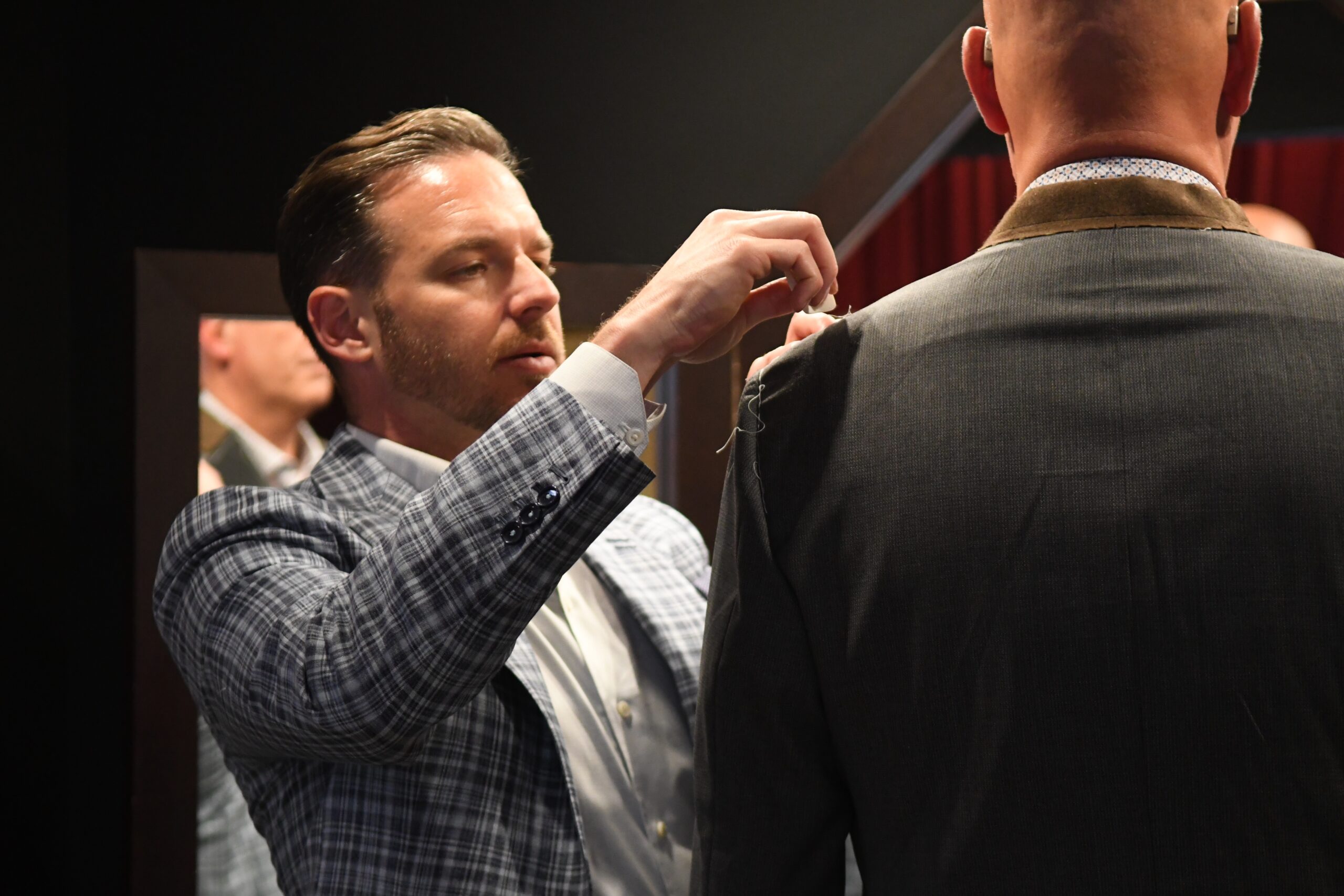In the 15 years we’ve been in business, we’ve heard this question a million and one times:
“How can I tell if a suit is well made?”
The Internet being the Wild West of information that it is, Googling this inevitably generates more questions than answers. What’s worse, the answers you’ll get are either incomplete, misguided, or flat-out incorrect.
Lots of menswear blogs with well-meaning writers will create content that sounds nice but offers no actionable information. Take this copied-and-pasted paragraph as an example:
“The ability for mass-manufacturers to replicate what used to be hallmarks of a custom suit has never been greater. With that said, you still want to examine the quality of the craftsmanship and look to see how the suit comes together.”
While this advice isn’t invalid, it’s not helpful either. How do you examine the quality of the craftsmanship? What does “look to see how the suit comes together” even mean?
Spoiler alert: it doesn’t mean anything if you aren’t educated on what to look for and how to look for it. A high-quality suit’s price is very often north of $2,000, so this education is crucial in helping you understand what you’re buying and what to expect from it in terms of overall value. Buying decisions become much easier once you become one of the cognoscenti.
With this in mind, we’ve created an exhaustive, comprehensive guide to understanding what makes a good suit good. The goal is to teach you how to think about suit quality, which will help you determine which suits are well-made and which ones aren’t. This page will provide an overview of how to discern suit quality, and each section will have other pages linked to it that delve into deeper, reliable information in the coming weeks. Check back often!
The Only Three Things You Need to Consider About Suits
To judge the quality of any tailored men’s garment, all we need are three “buckets” to think about:
In a nutshell, if your suit is constructed well, fits you in a flattering way, and uses a well-made cloth, voila, you have a high-quality suit.
If you’re pressed for time, read on for brief explanations of each category. For a deeper dive, click the links at the beginning of each section below, and you’ll be directed to an in-depth page with rich information for each topic. They can be read sequentially or non-sequentially, entirely at your own pace.
Construction: What is canvas, and why does it matter? What type of canvas was used in the manufacture of the suit you’re considering? In short, how is the suit made?
Take-away: The best-made suits are made with a “full canvas” construction, which offers the best value in terms of longevity, breathability, and drape. This tends to be on the upper end of the scale price-wise, but it’s worth it.
Fit: Whether we’re talking about suits, sport coats, jeans, or even t-shirts, one rule always holds true: fit is king. Whether a suit is off-the-rack, made-to-measure, or full custom, it can (and must) fit well. But what can you expect in terms of fit for each of these categories?
Take-away: Off-the-rack suits can be tailored to fit you well, but your chances of getting a well-fitted suit increase significantly when you buy either made-to-measure or custom. A proper fit is one that is clean (minimal wrinkling or bunching of fabric) and flattering to your shape.
Fabric: What types of textiles are commonly used on high-quality suits? What do “Super” numbers refer to? What are some fabrics you should avoid?
Take-away: Wool is the most common fabric for suits, and for good reason: it breathes well, resists wrinkling, has natural water resistance, and drapes handsomely. High super numbers (north of Super 140’s) will give you a fabric that feels beautiful, but not necessarily a “better” fabric, contrary to what most salespeople are trained to tell you.
In Conclusion
The world of tailored menswear is chock full of jargon and difficult-to-verify information. The information on this page and the ones to which it’s linked is solid, but there’s also quite a bit of it. If you have questions and/or would like to talk about a consultation, contact us anytime.




